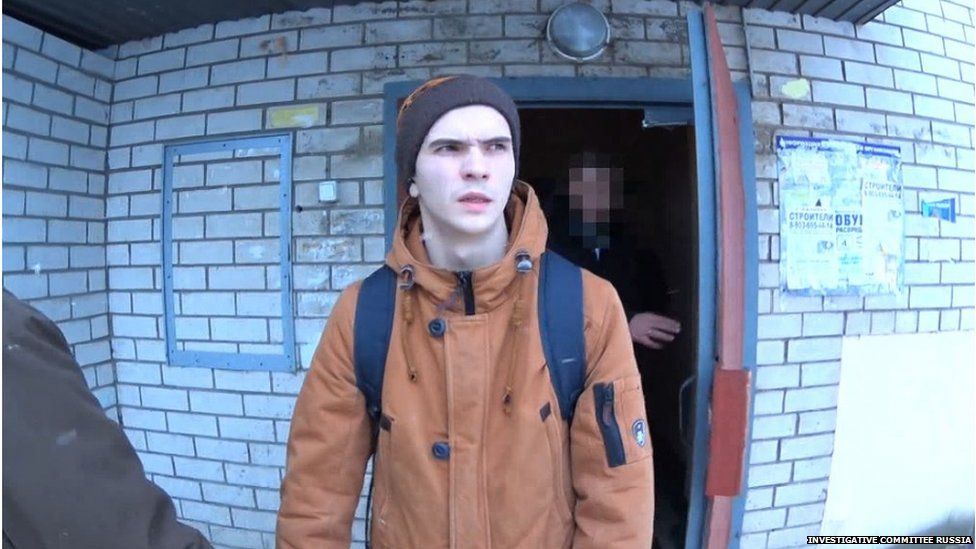Blue whale challenge administrator pleads guilty to inciting suicide
- Published

One of the men behind the so-called blue whale challenge has pleaded guilty to inciting teenagers to suicide.
Philipp Budeikin told Russian press his victims were "biological waste" and he was "cleansing society".
Participants in the "game" are thought to be set tasks over 50 days and the last "challenge" is for the person to take their own life.
Several UK police forces have warned local parents that their teenage children may be taking part.
As Newsbeat reported last month, an anonymous task master gives individuals demands like watching a horror film or self-harming.
Budeikin, 21, is being held at Kresty Prison in St Petersburg for charges of inciting at least 16 teenage girls to kill themselves by taking part in his "game".
He is not thought to be the only organiser and the BBC understands more people are being looked for in connection with these so-called "death groups".
BBC journalists in Russia say Budeikin had previously insisted he was innocent, he had no evil plan and was just having fun.
Yesterday, during a court hearing, he pleaded guilty.
Budeikin previously told the press his victims "represented no value to society".
According to senior investigators, administrators like Budeikin tell participants to delete all evidence of the blue whale challenge on their social media accounts, Russian newspaper Novaya Gazeta reports.
Anton Breido, head of the investigation, says his team were given evidence by a teenager who was in the final stages of the game but gave up.
"Budeikin very clearly knew what he had to do to get the result [he wanted]," he said.
"He started in 2013 and ever since he has polished his tactics and corrected his mistakes.
"Philipp and his aides at first attracted children on to VK [social network] groups by using mega-scary videos.
"Their task was to attract as many children as possible, then figure out those who would be the most affected by psychological manipulation," he writes.
Find us on Instagram at BBCNewsbeat and follow us on Snapchat, search for bbc_newsbeat